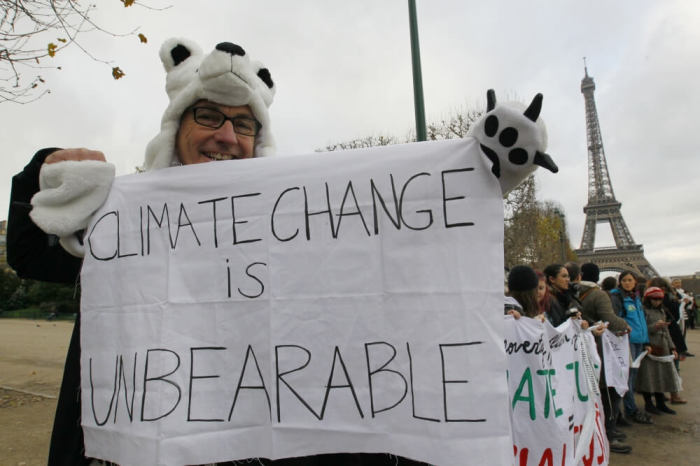Was July the 'Hottest Month on Record?' Who Cares?

3. The entire spread between the "hottest" and "coldest" Julys in the satellite record is 1.2˚C, and I dare you to find someone who will step from a room at 15˚C (59˚F) to a room at 16.1˚C (60.98˚F) and, unrehearsed, say "Ugh, this room is hotter!" (as distinct from mildly warmer). So much of this controversy is rooted in overblown rhetoric!
4. And the difference between July 2016 (0.39˚C) and the next- (meaning third-) hottest July (2010) is only 0.06˚C. That's indiscernible to humans and, for that matter, not really measurable — though calculable, but well under the measurement margin of error — for the globe as a whole.
Ah, but scientists say future Julys will only become hotter!
So what? Either they have a crystal ball, or they claim divine inspiration (which might be a little difficult for the atheists among them), or they're talking through their hats.
Nobody knows what future temperatures will be. Even the Intergovernmental Panel on Climate Change said in its Third Assessment Report, "The climate system is a coupled non-linear chaotic system, and therefore the long-term prediction of future climate states is not possible" (emphasis added).
"Future Julys will only become hotter"? That means the ups and downs evidenced in the 37-year satellite record will stop. How likely do you think that is? It means we'll get only ups — every single year, on into the indefinite future. There will be no more "little ice ages" driven by solar minima, or glacial periods driven by Milankovich cycles, or any other such thing. How likely do you think that is?
We're not done yet. How does July's temperature anomaly (Can you imagine how much less alarming these announcements would be if couched in such language?) fit into the broader history of global temperature?
It depends on how far back you want to go. For the satellite record, you've got the entire record for Julys above, and you can see for yourself: it's hardly significant. For the land and sea surface temperature record back to 1880, sure, maybe it's warmer, by perhaps 1˚C, than at the start of the period (not than the next-warmest month), but so what? Temperature changes by ten or twenty times that from low to high on any given day in many locales around the world, and by sixty to eighty times that from winter low to summer high.
Since the end of the last glacial period (~18,000 years ago), it's much warmer than at the start (thank God!), but much cooler than the Holocene Climate Optimum (~9,000–5,000 year ago) and probably cooler than the Minoan (~3,000 years ago) and Roman (~2,000 years ago) warm periods and almost certainly cooler than the Medieval Warm Period (~950–1250 a.d.).
Finally, in the debate over the magnitude of the human contribution to global warming, this is utterly irrelevant. A 0.06˚C difference is a 0.06˚C difference whether caused by turning on an electric stove burner a half second ago or natural solar and ocean cycles over thousands or millions of years or adding CO2 to the atmosphere for the last two centuries.
To argue, "If doubling atmospheric CO2 concentration raises global average temperature by x˚C over 100 years then July 2016 should be 0.06˚C warmer than July 2010; July 2016 is 0.06˚C warmer than July 2010; therefore doubling atmospheric CO2concentration raises global average temperature by x˚C over 100 years" is to commit the fallacy of affirming the consequent (if x, then y; y; therefore x). That's a fallacy because there could be other causes of y than x. And in this case we know for sure from long-term temperature history that there are plenty of causes for y (global warming) other than x (rising atmospheric CO2concentration).
So cool it, folks. Don't get sucked in by the rhetorical hype. Enjoy a mint julep, hug your kids, and get on with life, remembering God's promise: "While the earth remains, seedtime and harvest, cold and heat, summer and winter, day and night, shall not cease" (Genesis 8:22).



























